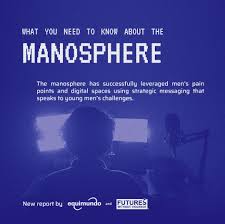A Deep Dive into the Manosphere: Its Influence and Importance

Introduction
The manosphere, an informal network of blogs, forums, and websites focusing largely on men’s interests and issues, has garnered significant attention in recent years. With discussions about masculinity, gender relations, and societal expectations, it influences public discourse around gender, making it an essential topic for researchers, journalists, and the general public alike.
What is the Manosphere?
The manosphere encompasses a variety of communities that share topics ranging from men’s rights, self-improvement, and dating advice to more controversial discussions around feminism and gender equality. Prominent sections include the Men’s Rights Activism (MRA) community, the Red Pill, and pickup artist (PUA) forums. Advocates within these spaces argue their stance on men’s issues—including divorce laws, child custody, and societal pressures, which they argue unfairly disadvantage men.
Recent Developments
Recent events, including high-profile cases in the media and the rising prominence of male-focused influencers, have sparked renewed interest in the manosphere. A significant example arose from the trial of Andrew Tate, a controversial figure associated with the manosphere, whose comments on gender roles and societal change have provoked widespread debate. His arrest in late 2022 on serious charges has led to a mixed public reaction, sparking discussions about accountability and the impact of online personas on real-world actions.
Additionally, the shift in social media algorithms has allowed for discussions within these communities to spread more widely, bringing about a resurgence in the visibility of traditionalist views on masculinity. Platforms like Twitter and TikTok have seen a particular rise in videos that either support or critique these perspectives, showcasing a dynamic battlefield of ideas.
Implications for Society
The significance of the manosphere lies in its ability to influence young men’s perceptions of gender roles and societal norms. While some dismiss it as a fringe movement, its reach cannot be underestimated. Studies show that young men engaging with these ideas may become susceptible to extreme viewpoints that reinforce negative stereotypes about women and gender equality.
In contrast, proponents argue that the manosphere provides a crucial space for men to discuss their grievances without fear of shaming or ridicule. They claim this is a necessary outlet in an increasingly complex dialogue around gender, identity, and societal roles.
Conclusion
Understanding the manosphere is vital for comprehending broader societal changes concerning gender relations. As discussions evolve, it is essential for readers to engage critically with content from these communities rather than accept it at face value. The manosphere may continue to gain traction, influencing future generations of men and their understanding of masculinity in modern society. As we approach an era where gender discourse is more prominent, the conversations originating from the manosphere will likely play a significant role in shaping cultural attitudes towards gender for years to come.








